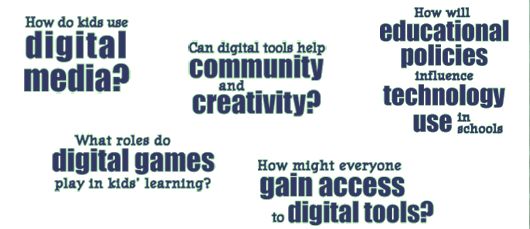
|

|
Digital technologies
currently pervade the lives of youth across
formal and informal learning spaces. Future generations of learners will
not only represent a more diverse population, but also represent a broader
range of demographics, learner profiles, media consumption patterns, individual
needs, and expectations. How do we create contexts, tools, and/or infrastructures
that will enable the creation of new digital learning experiences that
are culturally-sensitive, gender equitable, educationally-rich, and fun,
while also preparing youth for their professional lives?
|
|

|
|

|



